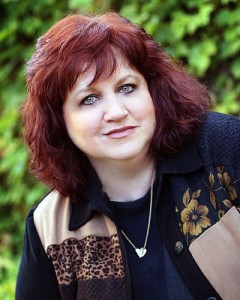 For the last four or five days, I have been sick. Really sick. Barely able to breathe sick. The kind of sick where coughing can result in vomiting, passing out, or a mental state very, very close to doing a whippet. I’m quite sure I killed a few brain cells. No matter. They weren’t doing me much good anyway. What I want to share with you is an ongoing epiphany I had last night when I was awake and spinning off too much ephedrine. It is this: ‘don’t quit while you’re ahead’. Not very profound. Bear with me.
For the last four or five days, I have been sick. Really sick. Barely able to breathe sick. The kind of sick where coughing can result in vomiting, passing out, or a mental state very, very close to doing a whippet. I’m quite sure I killed a few brain cells. No matter. They weren’t doing me much good anyway. What I want to share with you is an ongoing epiphany I had last night when I was awake and spinning off too much ephedrine. It is this: ‘don’t quit while you’re ahead’. Not very profound. Bear with me.
Month: June 2012
Ten Reasons Why I am Self-Publishing (Part 2) by Jordan Dane

I hope you saved room for a nice juicy steak. Part two of my post will cover the meaty reasons why I am self-publishing and building my virtual shelf. Point #6 deals with publishing industry contractual terms—something I didn’t know before I sold, but am dealing with now years later. Don’t get me started on Rights Reversion language. Oh, wait. That’s exactly where we’ll start. (If you missed Part One, you can read it here.)
6.) Control of Your Book Rights –Subsidiary Rights, Foreign Rights, and Reversion Rights. Retaining control of your digital rights (for e-books) and not have them tied up for years after your book is released is a HUGE benefit. The current contract language for e-books is lumped in with print book definitions. Makes no sense that digital books would have ANYTHING to do with print books, but most publishing contracts have these definitions lumped together in one clause or another (ie. “out of print” definitions and rights reversion language). Some of you may not know this or realize the impact until you try and get your backlist rights back, only to realize your house can keep rolling their rights to your work for years. This can be a nightmare. This is a HUGE reason for an author to self-publish, or at the very least, push to define e-books separately and not link the contractual terms to that of print book definitions. Why can’t e-book rights be limited to 2-3 years and stop? Why must an author ask for permission for rights that should automatically revert back to them and undergo a lengthy process over another 12-18 months where their digital rights are tied to royalty statements and definitions of books in print? Foreign rights can be lucrative too if your agent works this angle and shops them aggressively. Who knows? Maybe you both can shop those foreign rights on your next trip to France. Road trip! Continue reading “Ten Reasons Why I am Self-Publishing (Part 2) by Jordan Dane”
Big Al: What is a Reviewer?

Last fall Stephen Hise interviewed me, along with several other book reviewers, for his What Reviewers Want series. In the comment section of part 2, Jacqueline Hopkins posed some questions about reviewers:
“ . . . what is a reviewer, do they have to have certain credentials; i.e., a degree in English, or writing/reviewing, what makes a good reviewer, and can just anyone be a reviewer, are there professional reviewers and what makes them professional? Do reviews written by a reader carry more weight than a professional reviewer?”
I volunteered to attempt answering Jacqueline’s questions in two posts. This post will be my thoughts on some of the questions. In a few weeks, a follow-up post will explore the answers further with input from other reviewers and readers.
Since starting my review blog, I’ve been amazed to realize that when interesting questions like those posed by Jacqueline come up, the answers for me are usually the same as the answers a self-published author would (or at least should in my opinion) give if presented with the same basic question. Just like authors, reviewers cover the entire spectrum of possibility and attract different kinds of readers. On one end of the spectrum, you have James Patterson, Stephanie Meyer, and The New York Review of Books. On the other, you have my nine-year-old granddaughter’s authorial debut (published in a very limited pencil and printer paper edition) and the one line, one-star Amazon reader review that says, “This book sucks.” Anyone who is inspired to write a review can do it. All it takes is an account on Amazon – the same minimal requirement to publish an eBook with almost worldwide distribution. However, just as not every reader is going to like every book, not every reader is going to agree or value the opinion of every reviewer. Continue reading “Big Al: What is a Reviewer?”
Video Trailer: Casting Stones by Gina M. Barleau
1926 – A simple error in judgment leaves James Raven a broken man – his wife dead, and his infant son, motherless. He goes back home seeking solace, only to find more sorrow – and Esther Barton, his father’s hired girl – a woman he holds in contempt.
Missteps seal James’s fate. The penance? His child, now in the care of the one he had scorned, suffers abuse and neglect. The woman James judged unacceptable, now judges him. Trapped and helpless, he can only watch in horror.
Who will save the Ravens when they cannot save themselves…and at what cost?
Their salvation ends with blood on their hands, and they must bury their sins, deep in the Loess Hills of Missouri.
Casting Stones, by Gina M. Barleau is available from Amazon.
